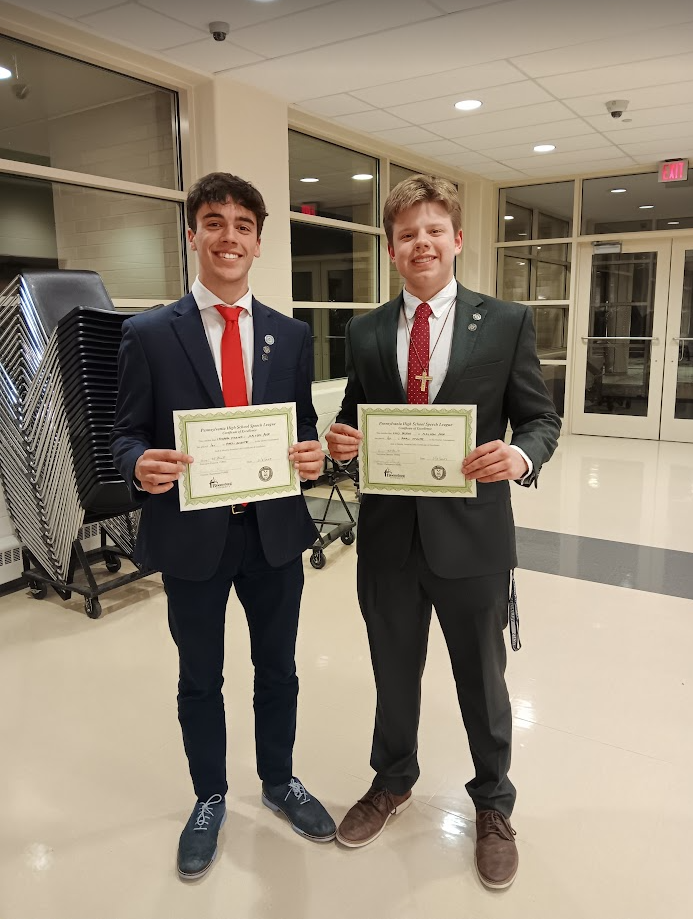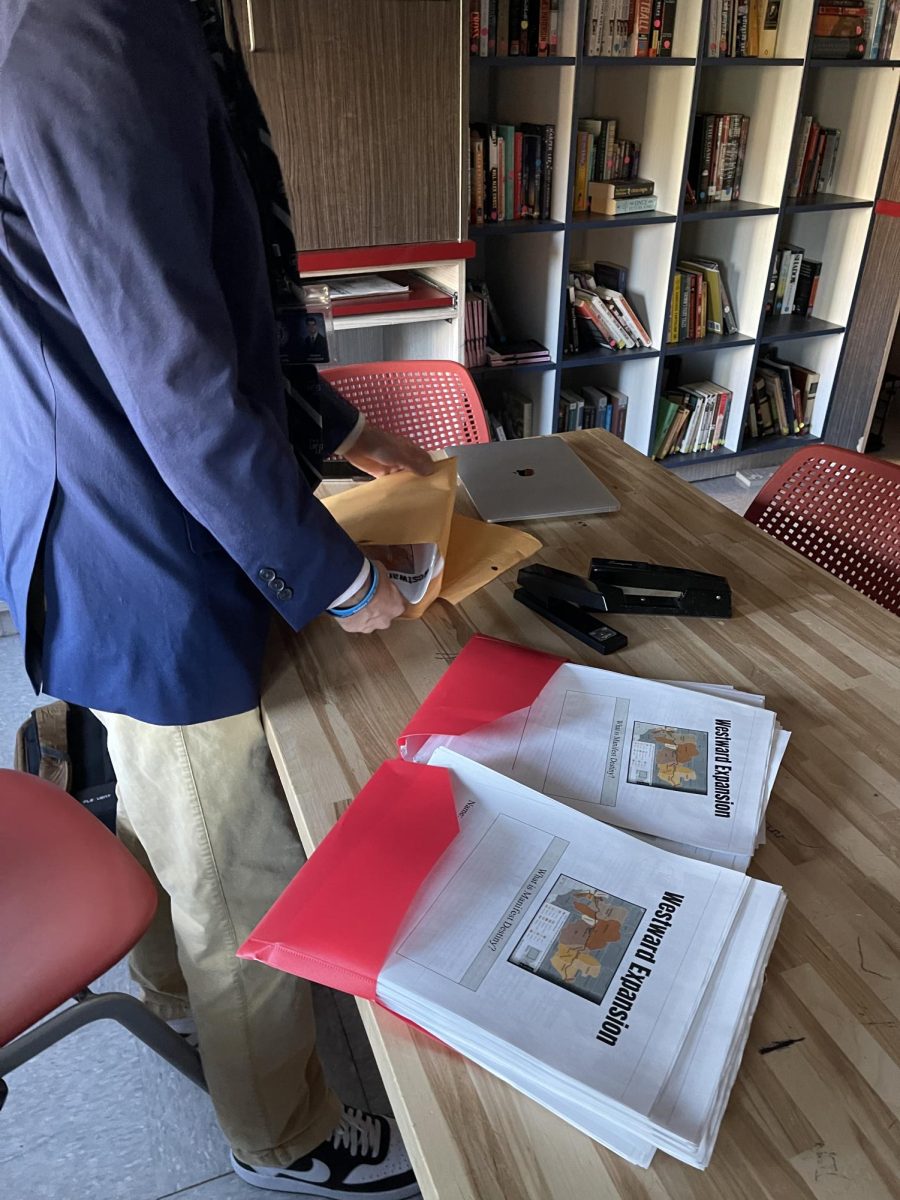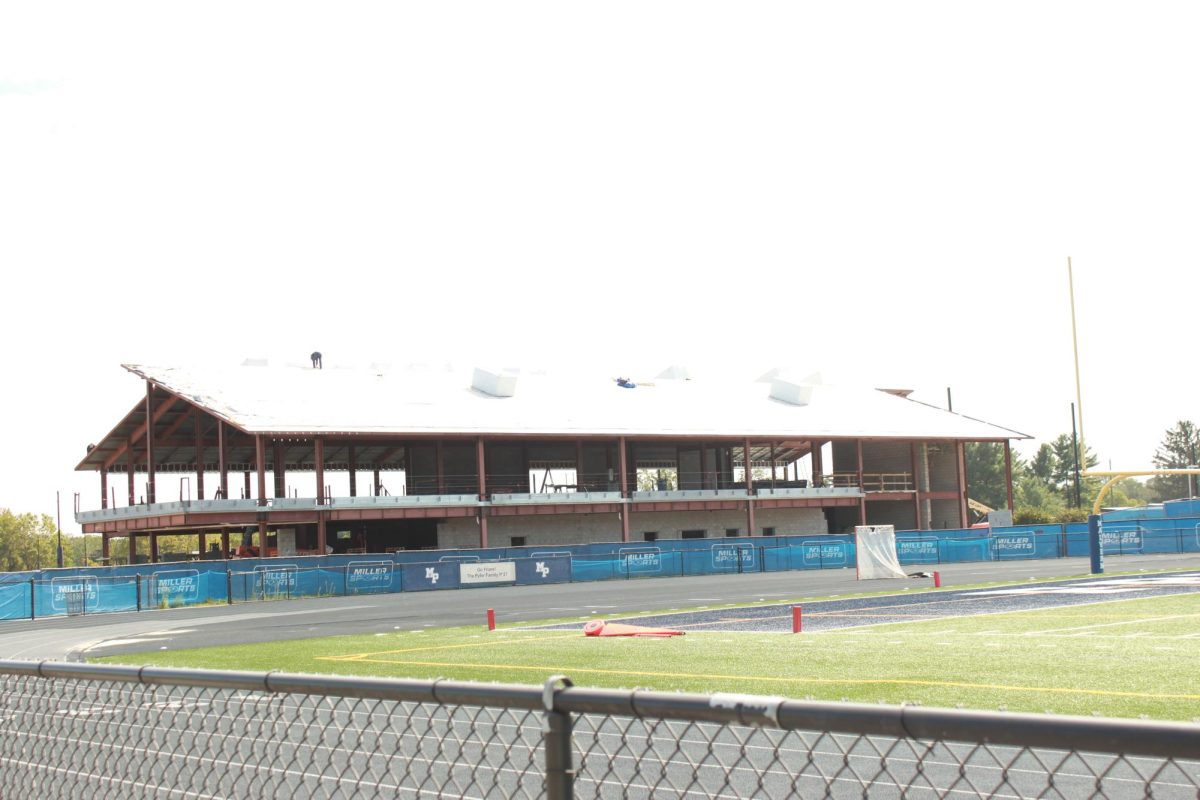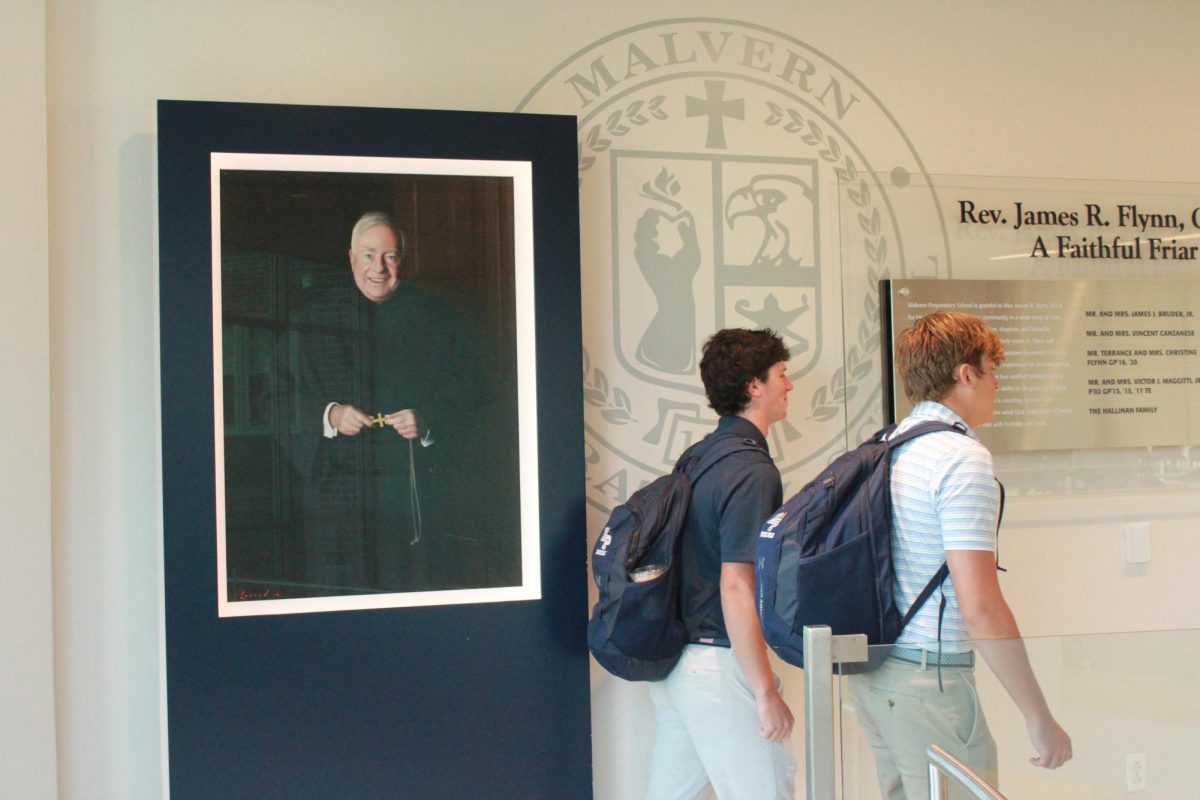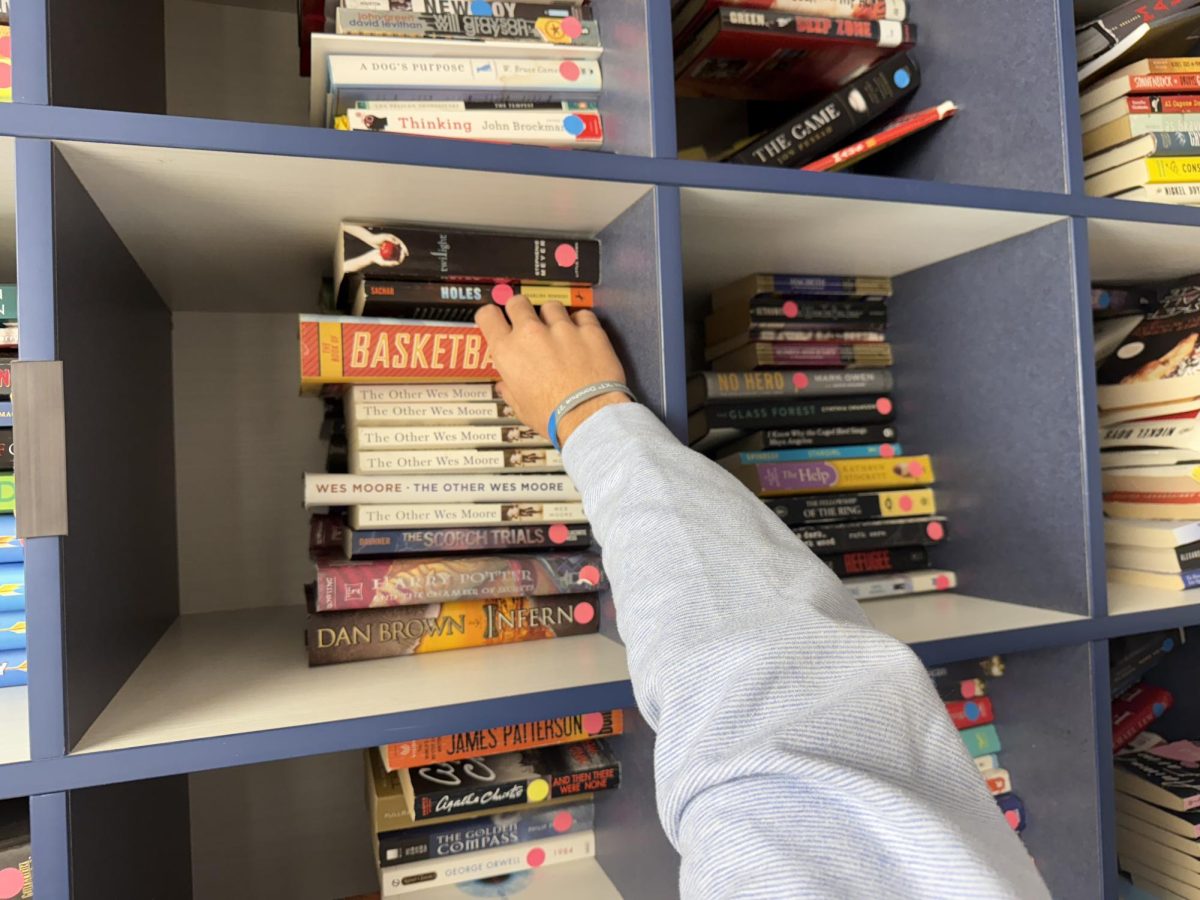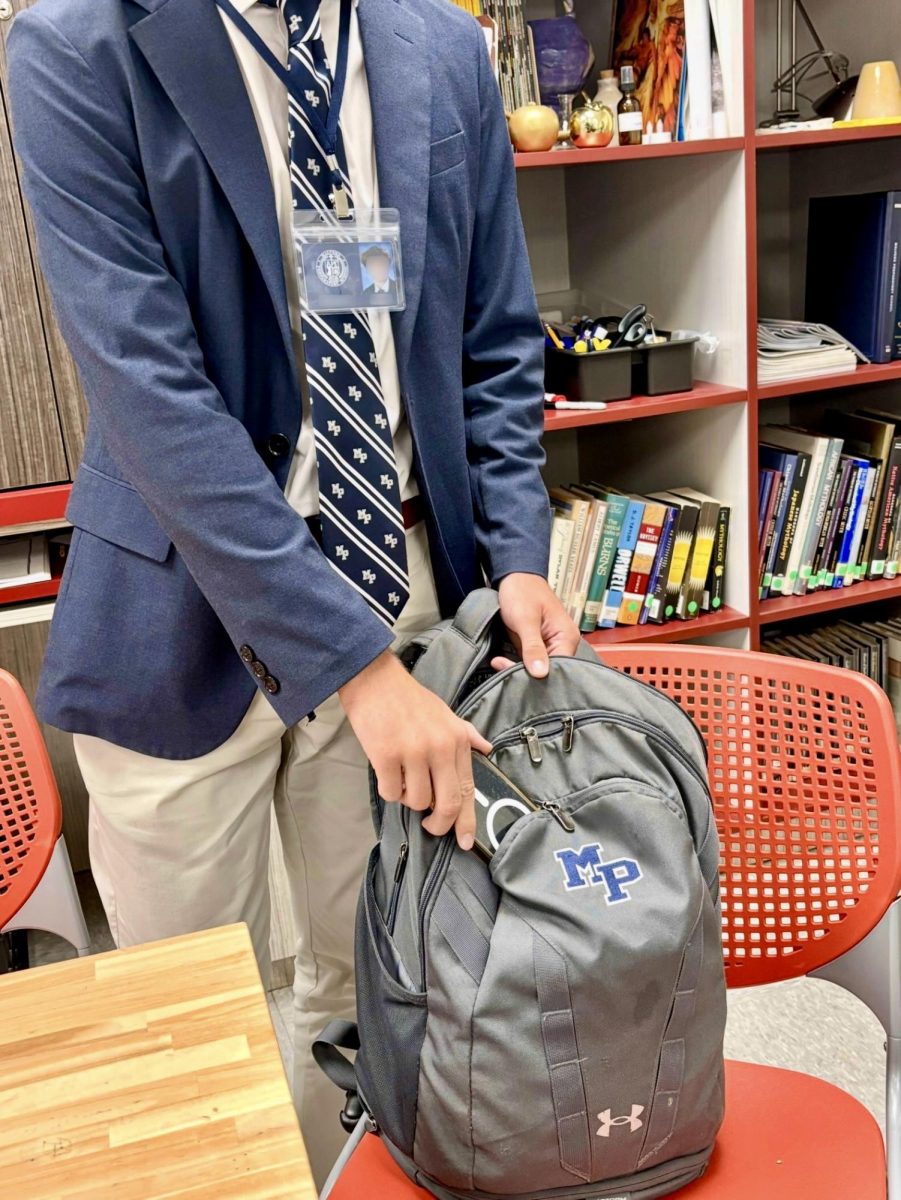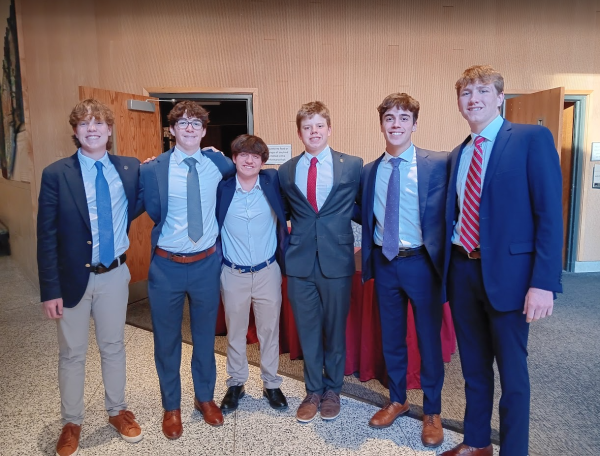
Malvern belongs to the Pennsylvania High School Speech League (PHSSL). Other schools Malvern competes against belong to multiple leagues which means they debate and compete far more often. Making it to the State Speech and Debate Championships is a tremendous achievement for the program. Mrs. Kenworthey, the moderator of the Speech and Debate Club, explained the intensity of other schools’ programs.
“Our school only belongs to one league, [the PHSSL]. So there’s lots of leagues out there. Most high schools that have a very robust team, their teams belong to two and three and four leagues, and they go to tournaments every weekend, and sometimes twice during the week. Most Malvern kids are pretty busy. So it’s really hard to get kids to be able to commit to more than one tournament a month,” Kenworthey said.
Luckily for Malvern, Seniors, Louis Delfra and Leonardo Scarpato are taking a huge step forward for the program by returning to States. COVID affected Malvern’s debate team greatly and switched all debates to online. This was difficult for Malvern since everyone lives farther away as opposed to a public school. Gathering kids in a room for an online debate during quarantine was an extremely difficult task. Malvern was barely involved in these online debates for that reason, setting them back from the rest.
“During COVID everything went online. When all debates were online it wasn’t enticing for Malvern,” Kenworthey explained.
Before COVID there were many students competing in districts with the chance of making it to the State Tournament. However, after COVID less students competed. A handful of current Friars and past alums have made it to States in the past few years, but the debate team is hoping to exceed their previous results.
“This is definitely a rebuilding year. I hate to say that it’s 2023/2024 and we’re still rebuilding, but we are because of COVID. Before, we had a lot of kids that would go and compete [and] we’d have a handful but not as many as we had before COVID,” Kenworthey said.
One new club at Malvern helping to bring more kids to the Speech and Debate club is First Take. First Take or Sports Debate is a separate club, but most of the kids in Speech and Debate participate simultaneously in both clubs. Senior, Louis Delfra who participates and competes in both clubs is looking to the future of both activities.
“It definitely has brought more kids. I mean, there’s definitely some guys that are rising up. I know Luke Bobbitt [a Malvern sophomore], he’s going to be debating. I’m really excited to see him [compete],” Delfra said.
Senior Leonardo Scarpato, last year’s First Take champion and founding member of that club, says it is a big help for not only the Speech and Debate ,but also for students themselves. He also said that debating about sports is a great way to learn real life skills.
“I think the sports Debate Club has been a great way to get people interested and find out that they actually really do like arguing and I think it’s an easier transition to go from debating sports, to debating politics or, larger issues than it is to go from debating nothing [prior to competing]. So I think it serves as a good middle ground for people to hone in on their skills,” Scarpato said.
Overall, First Take has grown the popularity and culture of debating throughout campus. It is positively reinforcing the process of taking a loss and learning from your mistakes.
“[First Take has] done a lot. It engages students to care about debate and also understand that losing is part of the process … People keep doing it because they love it” Delfra said.
Learning the process of losing is not the only skill Malvern debaters are honing. Typically opposing debaters like to approach a debate as a court case and persuade the judge as a lawyer would. Using the rulebook as their only guide to win over the judge and diminish the value of their opponents words. However, Mrs. Kenworthey prefers her students to use their knowledge of the topic and their ability to persuade the judge to win. Since these are more applicable and realistic skills.
“I would much rather that my students win the case, by the logic of their argument, the persuasiveness of their words, and the quality of their stats, examples and quotes, rather than for them to say to the judge, oh, judge according to the bylaws of the PHSSL. That type of definition is not admissible,” Kenworthey said.
Leonardo does not adhere to this “by the book” strategy of debate either. He says the rules are to keep the debate in order and are a good tool in order to catch someone boldly breaking them. Using the rules won’t help you apply your debate skills in the real world.
“I think rules are not a way you would win any debate, in any day to day circumstance. That’s not how you convince someone to do something. That’s not how you persuade your sister to give you the TV remote you know, so I don’t think that should be the mindset going in. The rules are really just there to make sure It doesn’t turn into a screaming match. That’s really it, or that someone doesn’t lie,” Scarpato said.
However, Louis expresses that it can be a good strategy but, in order to reach the next level of debate you need to be able to put passion into your argument even if you don’t truly care about the topic. Integrating both passion and persuasiveness to prove your point to the judge intellectually and emotionally is crucial.
“A lot of kids are good at [debating by the rulebook]. And a lot of kids have gone very far doing that. But the thing that Miss Kenworthy has taught me and Leonardo to do… is to really think not just intellectually why this matters but to get on to the ethos, pathos, logos, like you care about this with your heart, you care about this with your spirit, you care about this with your mind and being able to blend those together creates an argument where a judge has to choose you” Delfra said.
Both Leonardo and Louis have very different ways of improving their craft. Preparing will be a key factor in helping them when the competition gets harder in states. Louis’ way he improves at debate is trial and error. He debates as much as possible and if he loses he fixes his mistakes and picks up strategies from his opponents for the future.
“The best way to get better at debating is to keep debating and lose a bunch. It’s kind of inevitable you’re going to lose when you first start. So the way you prepare is by doing other debates. You kind of have to take a shot in the dark at first and then as you do it, you learn more and you take a little bit from everybody else,” Delfra says.
Leonardo says he doesn’t need to have a set practice routine since he mostly debates in the impromptu category where you receive your topic shortly before the debate begins. The debaters receive around fifteen minutes to research and then they have to be ready to persuade the judge. Leonardo mostly prepares by perfecting his public speaking and staying calm before a big debate.
“For me, I try [to] stay relaxed. I usually don’t get too nervous, maybe have a water, talk to people. Sometimes I recognize some of the kids [and] I’ll go around [and] meet people. But, I really don’t have a routine when it comes to competition or anything like that,” Scarpatto says.
Looking past Louis and Leonardo’s story, Mrs. Kenworthey preaches that Speech
and Debate is more than just a high school competition. More than just making it to States. Speech and Debate prepares you for an abundance of real world experiences and opportunities. These Malvern students are doing more than just meeting new people and competing for something they enjoy and a school they love. They are receiving an upper hand on real world skills.
“As an adult, you’re going to have to persuade somebody to believe something they don’t yet believe. And so to me, this is one of the most real and consequential activities we can offer at Malvern Prep. The real world is not do your homework. Take the test. That’s not the real world. The real world is you have a meeting with a client in 20 minutes. Are you ready and what are you gonna tell that potential client?” Kenworthey says.


